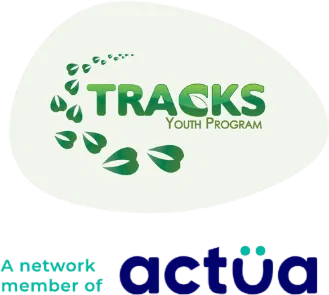Blog: Reflection on working with TRACKS Oshkwazin
I was honoured to have the opportunity of working for TRACKS over this past winter semester for the Oshkwazin program. Working with a program geared towards high school aged youth was a new experience in itself. It was a rewarding experience getting to see what this kind of programming looks like and having the opportunity to work with this age group. Throughout the semester I was able to help with a ribbon skirt making workshop at Nogojiwanong Friendship Centre, a trip to the sugarbush in Curve Lake and other TRACKS programming such as day camps and school programming. I was really able to see the importance of what these programs offer.
Having contributed to planning for the summer months, I am excited to see what the youth from the Oshkwazin program are going to work on this summer, I’m sure it won’t be anything short of incredible. Being able to ground yourself in both Indigenous and Western sciences and ways of knowing is an important skill to have and it isn’t in to many spaces that youth are able to have this opportunity. Having opportunities as a young Indigenous person to bring your entire self into any environment and specifically a summer job is a powerful act in itself.
Having participated in other science-based programming delivering it to Indigenous youth and being an Indigenous instructor, I saw the absence of seeing ourselves reflected in the curriculum and programming. Centring Indigenous knowledge as TRACKS continuously does is a core belief that I think why this program is so important. As an Anishinaabekwe, it is empowering to see the Oshkwazin program thriving and developing into meaning leadership opportunities for Indigenous youth.
Throughout the course of this semester, I was also a student in Indigenous Environmental Studies here at Trent along with working at TRACKS. In my studies this year, I was able to learn from and alongside so many powerful folks making meaningful contributions to community in the many variations of meaning of that word. Some of these folks contribute to Indigenous resurgence through their commitments to language, intergenerational knowledge transfer, culture, community-led research, and education that centres Indigenous sciences and knowledges in a Westernized academic setting. Reflecting on the semester, it wasn’t only through my studies that I saw this happening but through my experiences with TRACKS too and the core values here. I am excited to see what lies ahead for the Oshkwazin program in the upcoming summer and school year, providing spaces for Indigenous students to grow and learn in a space that values their identities. I want to say Miigwechwendam for the opportunity to work with TRACKS this semester!
By Jessica Frappier
